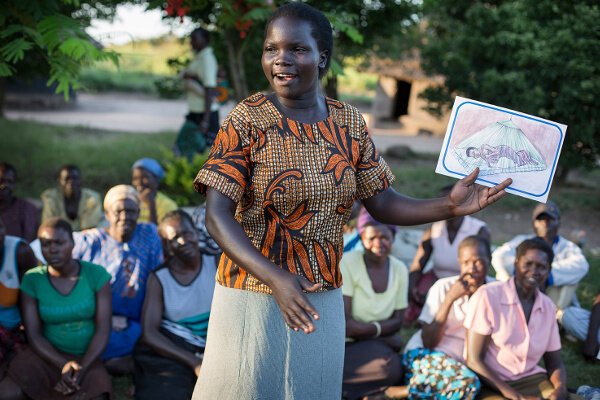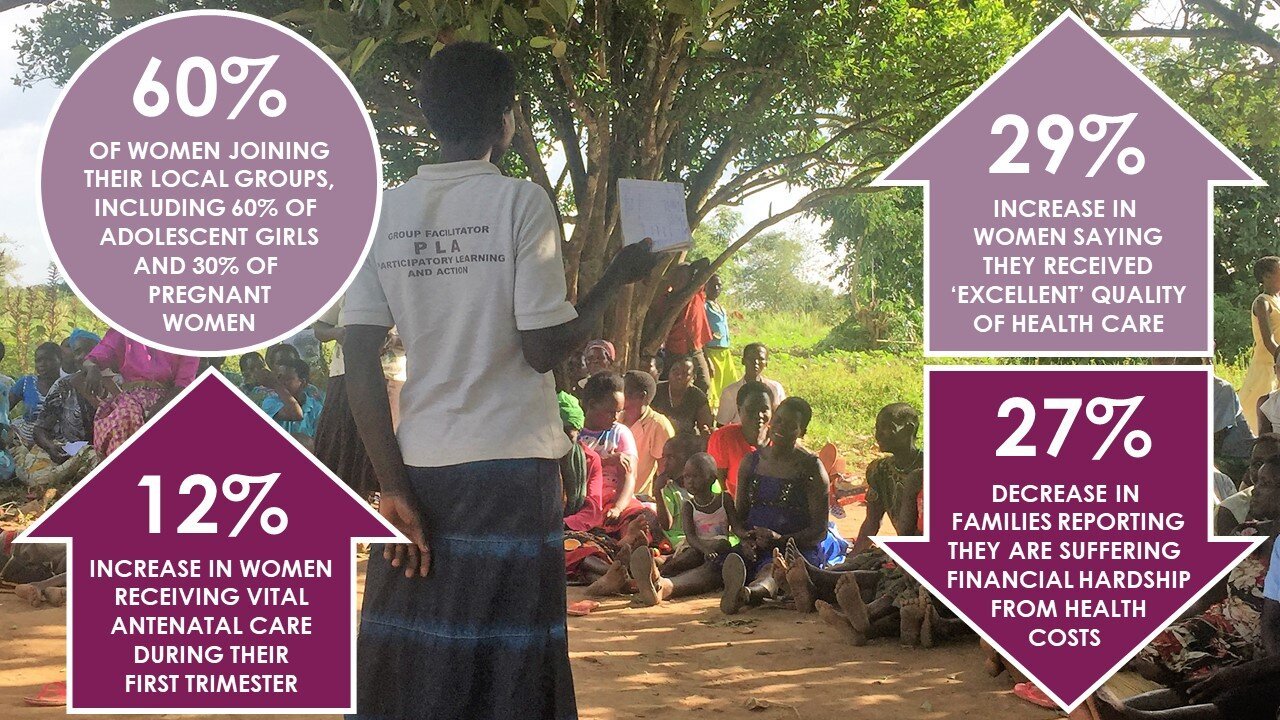Life-Saving, Life-Changing Impacts in Oyam, Uganda
More mothers, their newborn babies and adolescents in the community are surviving and thriving thanks to women’s health groups.
Women and Children First worked with our partner Doctors with Africa CUAMM to establish 200 groups with funding from Comic Relief, the Big Lottery Fund, the Vitol Foundation and our supporters. Thanks to the groups and their inspirational leaders, there’s been a 22% increase in women attending 4 or more antenatal care visits.
200 teenagers have also been trained to become sexual health ‘adolescent champions’. They are sharing knowledge with peers, teens and friends, making them aware of available health services and their right to quality sexual and reproductive health care.
The Problems and Solutions
Oyam until 2006 was ravaged by decades-long conflict, described as ‘the worst forgotten humanitarian crisis in the world’. The region faces many challenges, including maternal, adolescent and child health.
1 in 277 births in Uganda ends in a woman dying in pregnancy, childbirth or shortly after birth, compared to 1 in 10,000 in the UK. Teenage pregnancy rates are 26%.
200 Health Groups were set up where women and adolescents decide which health problems they prioritise and what the community can do to help solve them. The project benefitted 31,223 women, adolescents and babies.
182 volunteer health trainers were supported and 24 health workers trained in youth friendly service provision. 9 health facilities were supplied with health commodities such as essential drugs and tests, and equipment including weighing scales and delivery beds.
Results and Key achievements
In addition to these successes, the other key achievements of the project included a 4% reduction in adolescent pregnancies, prior to the Covid-19 outbreak and a 3% increase in the number of deliveries by skilled birth attendants, such as midwives.
There has also been a 27% reduction in women saying they face ‘many barriers’ to accessing the vital healthcare services they need.


